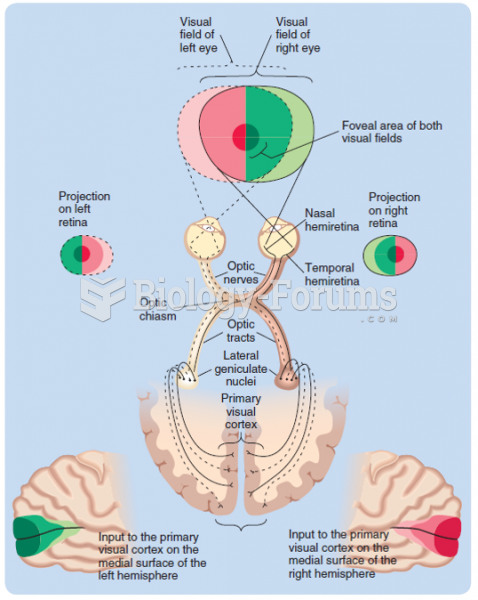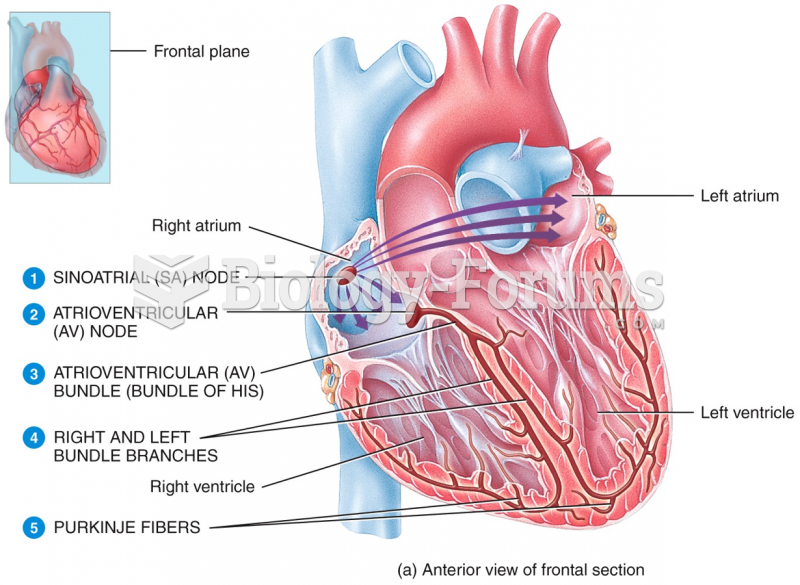|
|
|
Astigmatism is the most common vision problem. It may accompany nearsightedness or farsightedness. It is usually caused by an irregularly shaped cornea, but sometimes it is the result of an irregularly shaped lens. Either type can be corrected by eyeglasses, contact lenses, or refractive surgery.
Despite claims by manufacturers, the supplement known as Ginkgo biloba was shown in a study of more than 3,000 participants to be ineffective in reducing development of dementia and Alzheimer’s disease in older people.
There are over 65,000 known species of protozoa. About 10,000 species are parasitic.
Aspirin is the most widely used drug in the world. It has even been recognized as such by the Guinness Book of World Records.
The FDA recognizes 118 routes of administration.







